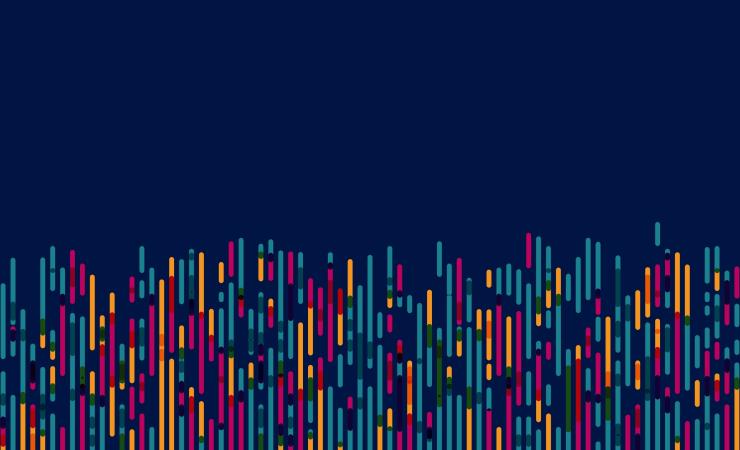The clinical guidelines physicians use to treat diseases are often based on randomised clinical trials. Although this data shows the general efficacy of a treatment, it often cannot provide information on the long-term effects of treatments, how they work alongside other drugs, or how they affect certain subgroups in society such as the elderly or those with obesity.
To tackle these gaps in knowledge, a group of experts in urology, health services research, implementation science, artificial intelligence (AI), epidemiology, and data science have launched the UroEvidenceHub platform. The platform aims to better understand real-world urology guidance and practice across all subgroups within and across European countries. This can help optimise the treatment of patients with urological conditions such as prostate cancer, bladder disorders and kidney diseases.
The platform will use urology data from clinical trials alongside information from real world data analytics, including patient feedback. The platform will also see how to best use AI to help develop new guidelines and treatment recommendations, especially where clinical trials do not exist.
By collecting real world data from patients affected by a urological condition and linking the platform to the patient’s electronic health record, physicians can soon find which treatments worked best for patients with similar medical histories not covered by clinical trials and current guidelines.
The UroEvidenceHub platform was developed by the European Association of Urology and uses similar data techniques to those deployed by the Innovative Medicines Initiative (IMI) projects PIONEER and OPTIMA.
“We know the gaps in data that there are, we just have not been able to find them in accessible datasets and bring them in a format that is researchable and analysable to give us the answers we need,” says Professor James N'dow of Aberdeen University, who is part of both projects and helped launch the hub.
The PIONEER project aims to format, standardise and integrate data from well-known prostate cancer studies, electronic health records and registries so they could be accessed on a single platform. In total, over 20 anonymised datasets containing information on more than 3.5 million prostate cancer patients were added to the platform, allowing researchers to address knowledge gaps for the screening, diagnosis and treatment of prostate cancer patients.
Prof. N’dow serves as the academic lead in PIONEER. His counterpart as project lead for the EFPIA and industry partners is Dr Susan Evans Axelsson, a medical advisor at Bayer. She says that the lessons from the PIONEER project are being used in the UroEvidencehub. “The data is out there,” she said, though she notes that it is not being collected in a common and cohesive way. “We're learning that we can do research, using high-quality and multi-disciplinary data, including for example patient-reported outcomes, to help fill the knowledge gaps deemed most relevant to the patients by the patients.”
Prof. N’dow is also academic coordinator in the OPTIMA project, which is working to create Europe’s first platform for generating oncology data and evidence. The goal is for the platform to work among different datasets representing over 200 million people. The project is also developing advanced analytics and AI models to identify knowledge gaps in prostate, breast and lung cancer, and propose improved clinical guideline recommendations. These analytics and AI models will be complemented by the diverse data and research methods used in the UroEvidenceHub.
Another IMI project called EHDEN is also providing expertise to the platform via its EHDEN Academy, which trains SMEs with the skills and tools needed to map and analyse reports from clinicians and patients about how effective medical treatments are outside the lab, in ‘real world’ use. “We've trained a whole cohort of young academic urologists on real world data analytics,” says Prof. N’dow. “They go on to other IMI-funded projects like EHDEN Academy, learn those tools, and bring them back to us.” He explains this work is strengthening confidence in estimates of effects from real world evidence compared to clinical trials, and learning how to use explainable AI appropriately.
Moreover, the biggest benefit of UroEvidenceHub is the trust it creates through Europe’s urology community, which initially started from the links made in PIONEER.
Prof N’dow is confident that UroEvidenceHub will now grow and sustain itself based on the EAU’s current experience of bringing on board so many collaborating partners in just six months in the first pilot of a project called IMAGINE, which now has data from 31 countries, 187 hospitals, and thousands of patients. “There is a willingness, when there is trust, that the agenda is for the greater good,” he said. “We as a professional medical society understand that the expectations on us are, for now, not matched by our resources, so we know that we cannot do this on our own.” The lessons learnt in establishing the UroEvidenceHub can be shared with other professional medical societies and for other non-urological disease areas; the European Association of Urology would be keen to share knowledge and lessons learnt with others.
PIONEER, OPTIMA and EHDEN are supported by the Innovative Medicines Initiative, a partnership between the European Union and the European pharmaceutical industry.
